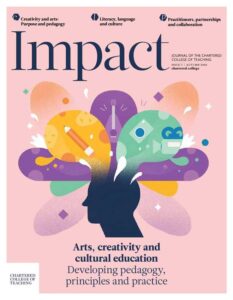The Plymouth Oracy Project was designed to develop theoretical and pedagogical understanding of dialogic talk for learning amongst school staff, with a particular focus on improving the oracy development and educational outcomes of pupils falling into the ‘disadvantaged’ category. This article reports on the impact of the Plymouth Oracy Project, rather than the methods applied in improving ‘other measures’ of student success, and presents two case studies exploring the impact of embedding oracy on confidence, conflict resolution, emotional literacy, prosocial behaviours and attendance.
The importance of oracy in the classroom
Oracy is the confidence to express oneself in speech using physical, cognitive, linguistic, social and emotional skills. Research stresses the reciprocal nature of oracy and therefore the important role that adults, such as teachers, play in supporting oracy (Alexander, 2012; Nichol and Andrews, 2018; Millard and Menzies, 2016). Alexander et al. (2017) a
Join us or sign in now to view the rest of this page
You're viewing this site as a guest, which only allows you to view a limited amount of content.
To view this page and get access to all our resources, join the Chartered College of Teaching (it's free for trainee teachers and half price for ECTs) or log in if you're already a member.











